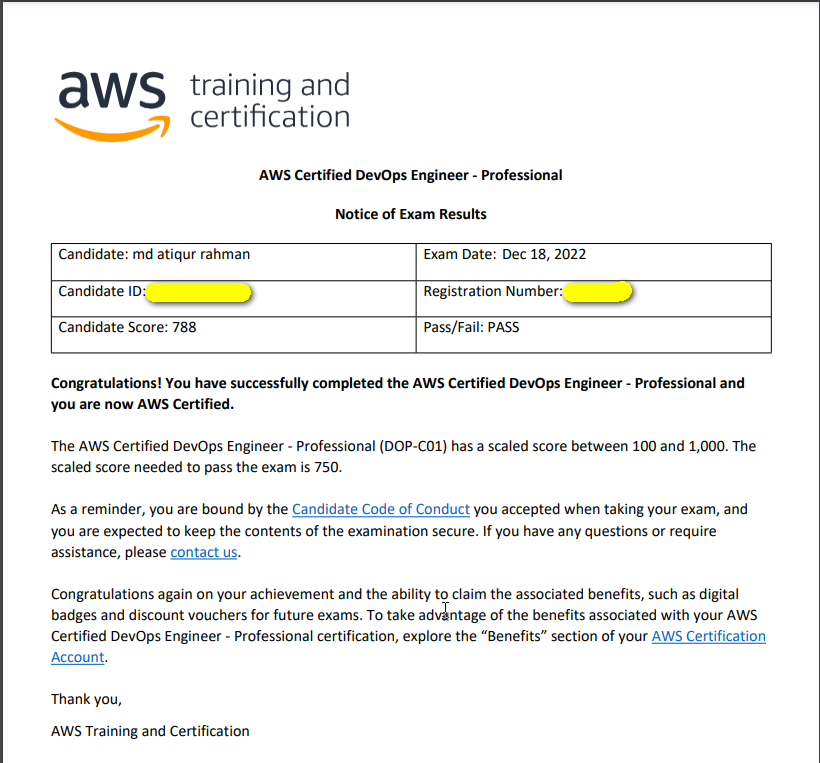Why should you get AWS Certified?
If you’re considering a career in cloud computing, or if you’re already working with Amazon Web Services (AWS), then getting AWS certified can be a valuable investment in your professional development.
Here are some reasons why you should consider getting AWS certified:
AWS certification can help you stand out in a competitive job market. With the growing demand for cloud professionals, having AWS certification on your resume can make you more attractive to potential employers.
AWS certification can increase your earning potential. According to a survey by Global Knowledge, AWS-certified professionals earn, on average, 15% more than their non-certified counterparts.
AWS certification can validate your skills and knowledge. By earning an AWS certification, you can demonstrate to employers and clients that you have the skills and knowledge needed to work with AWS technologies.
AWS certification can help you keep your skills up-to-date. The AWS certification program is constantly updated to reflect the latest AWS technologies and best practices, so earning an AWS certification can help you stay current in your field.
In conclusion, getting AWS certified can be a valuable investment in your professional development, helping you stand out in the job market, increase your earning potential, validate your skills, and stay current in your field. If you’re considering a career in cloud computing, or if you’re already working with AWS, consider getting AWS certified.
How should you prepare?
The AWS Certified DevOps Engineer – Professional exam is intended for individuals who perform a DevOps role with at least two years of experience working with AWS. This exam validates your ability to:
Implement and manage continuous delivery systems and methodologies on AWS
Implement and automate security controls, governance processes, and compliance validation
Define and deploy monitoring, metrics, and logging systems on AWS
Implement systems that are highly available, scalable, and self-healing on the AWS platform
Design, manage, and maintain tools to automate operational processes
To prepare for the exam, you can review the exam guide and take advantage of the AWS training and certification resources, including online courses, instructor-led classes, and practice exams.
It’s also helpful to have hands-on experience working with AWS, including setting up and managing AWS environments, implementing and maintaining systems, and working with AWS services such as EC2, ECS, S3, CodeBuild, CodePipeline, and CloudFormation.
Reading Materials
If you like to read like me, then I recommend some reading materials to you which helped me a lot in my exam.
This article on Medium helped me a lot. I tried the examples which he mentioned in that article and also covered those topics at least so that I can answer as much as possible. It’s important that you gain a clear understanding of the following aws services which will help you to avoid confusion the exam time.
- Event Bridge
- CloudWatch
- Config
- Inspector
- Kinesis Firehose
- IAM policies for cross-account access
- CodeBuild
- CodePipeline
- ElasticBeanstalk
- ECS
- ECR
- GuardDuty
- Organization
- VPC
- Lambda
- Step Function
After that, I would recommend one book “AWS Certified DevOps Engineer – Professional Certification and Beyond” which will help you to get prepared in a structured way.
Good luck on your exam!
For Reference here, I am uploading my exam scorecard.


